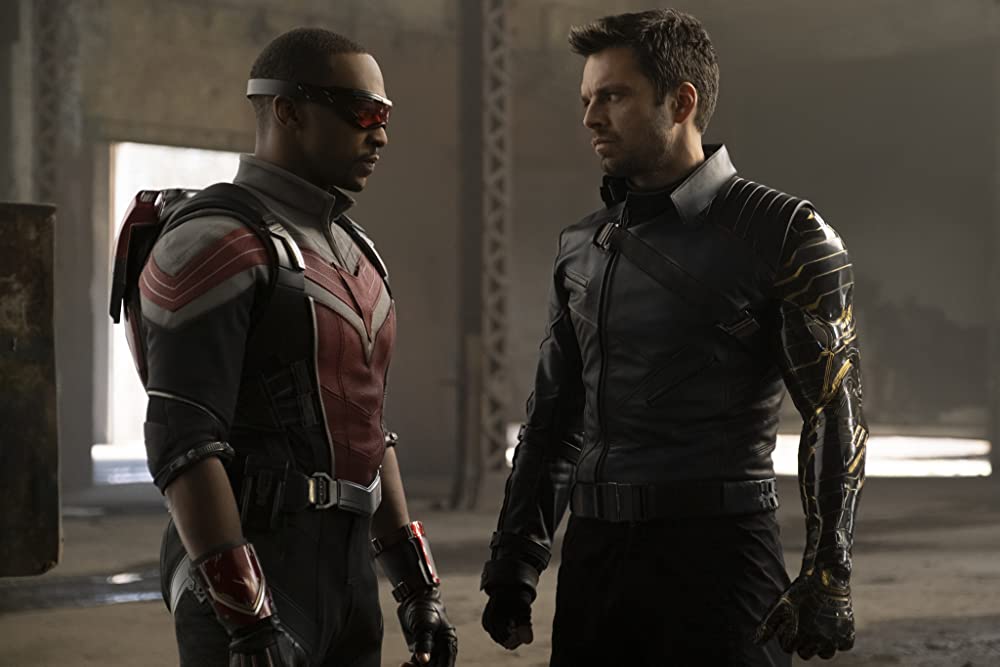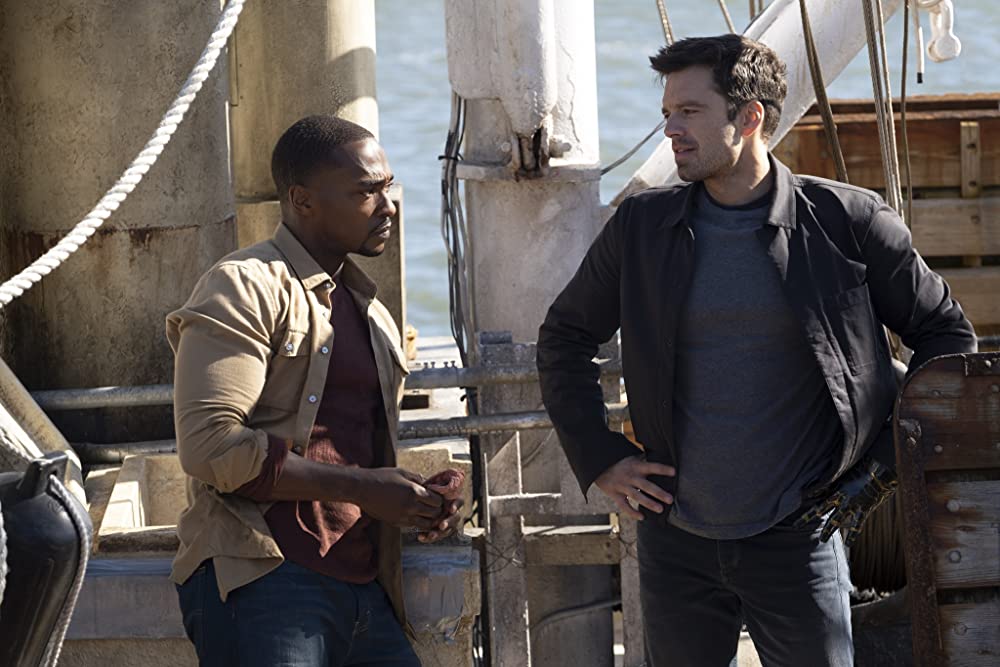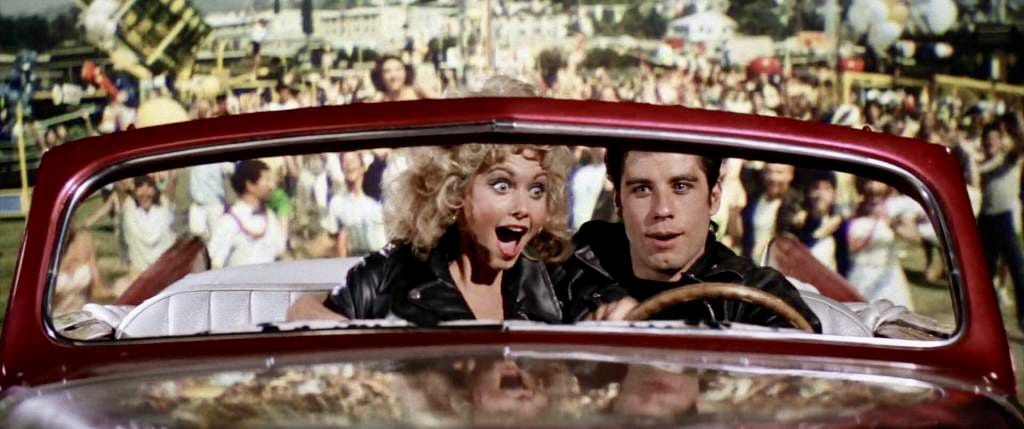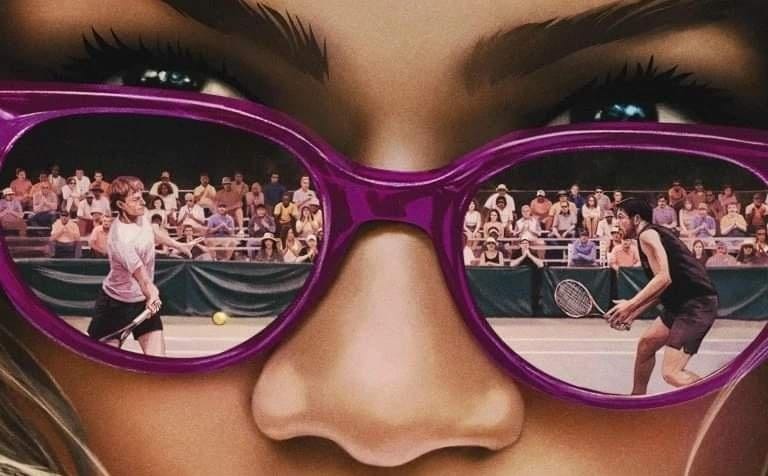By Lauryn Clarke, Third Year, History
The first episode of Marvel’s next entry into Phase 4 brings us once again into the world post-Avengers: Endgame (2019), where people are reeling from the return of half of the universe and the loss of two of Earth’s mightiest heroes.
Anthony Mackie and Sebastian Stan return, exploring what it means to be left behind in the aftermath and how to deal with the past in a meaningful way.
Like Spider-Man: Far From Home (2019) and WandaVision (2021) before it, The Falcon and the Winter Soldier (2021) shows audiences a world dealing with consequences, both personal and global. ‘The Blip’ (aka the events of Avengers: Infinity War and Avengers: Endgame) has had ramifications on everybody, shown in both Sam’s family’s financial issues and in the introduction of the antagonist group the ‘Flag-Smashers’, whose credo is that the world was better when half the population was gone.

This is pretty much all we know about them right now but I’m content with this – this episode was much more focused on characterisation and laying the groundwork for what’s to come, rather than immersing you in the conflicts right away which felt more natural as a viewer.
This episode very much focuses on the idea of legacy and symbols – Captain America’s shield was gifted to Sam by Steve Rogers (Chris Evans) himself, and yet he feels the weight and significance of it belongs to someone else, echoes of the scene from Endgame (2019) used right at the beginning of the episode to drive this point home. A surprise cameo from Don Cheadle’s character James ‘Rhodey’ Rhodes directly asks why Sam hasn’t taken up the mantle and their resulting conversation provided an interesting interaction between the two who have been side characters in most of the movies thus far.
This topic of who will succeed Steve Rogers as Captain America will be an undercurrent of the show. In the comics, Sam Wilson, Bucky Barnes, and John Walker have all taken up the shield, but this show seems to not be framing it as a competition as to who wins the mantle, but more an exploration of what it means to take up a legacy and what the idea of Captain America means to the people. The idea of legacy was explored in Spider-Man: Far From Home (2019) and I’m excited to see this explored in more depth and in a more adult way in this upcoming series (it is worth noting that show received a U.S. TV-14 rating, making it the highest age rating thus far on any MCU project).

Sebastian Stan as James ‘Bucky’ Buchanan Barnes finally gets his time to shine, and I could not be more pleased. Stan has developed a large fan following despite having only around 45 minutes of screen time across 6 movies, but here you can see why. His portrayal of Bucky’s guilt and attempts to make amends for his actions as the Winter Soldier, as well as the PTSD he has from being essentially one of the world’s longest POWs, is incredibly nuanced.
Aside from the lead actors, Adepero Oduye shines as Sarah Wilson. She plays off Anthony Mackie well, and as Sarah, she seems unafraid to call her brother out – I could genuinely believe that they were siblings from their interactions. A scene where she and Mackie are applying for a loan tugged right at my heartstrings – it is clear that superhero or not, she and her brother are still a black family from New Orleans and that this show will not be shying away from what impact this has on Sam, a topic head writer Malcolm Spellman has been very clear about in interviews.

This tone is subtle and maliciously clear towards the end of the episode when we are introduced to John Walker (Wyatt Russell) as the new Captain America. The rhetoric used to introduce him, including being described as filling the need for “a real person who embodies America’s greatest values” feels almost Trump-esque. It is clear that Sam knows having the shield in his hands would mean something very different to a lot of people than it did in Steve’s, and with this, I’m reminded of the ongoing debates surrounding diversity in comics and comic book movies about how important representation can be.
Featured: IMDb, Marvel, Inc.
Will you be watching The Falcon and the Winter Soldier?









